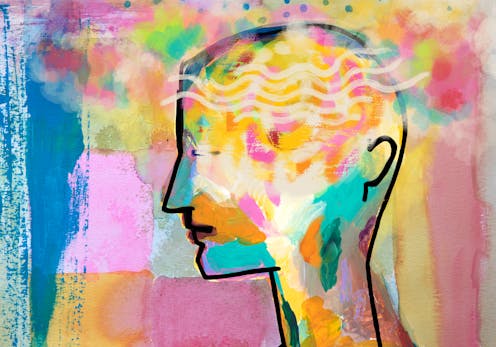Introduction: The Importance of Music Therapy for Adults with Autism
Music therapy has been proven to be a highly effective form of therapy for individuals with autism. It has the ability to address the unique needs of individuals with autism and provide them with a means of communication and self-expression. Music therapy can help individuals with autism develop their communication skills, enhance their cognitive abilities, reduce anxiety and stress, improve social interaction and emotional expression, and enhance physical coordination and movement. By understanding the challenges faced by individuals with autism and the benefits of music therapy, we can better appreciate the importance of this form of therapy.
Understanding Autism: Challenges and Benefits of Music Therapy
Autism is a neurodevelopmental disorder that affects individuals in various ways. It is characterized by difficulties in social interaction, communication, and repetitive behaviors. Individuals with autism often struggle with expressing themselves and understanding the emotions of others. They may also have difficulty with sensory processing, which can make it challenging for them to engage in certain activities.
Music therapy has been found to be highly beneficial for individuals with autism. Music has the ability to engage multiple areas of the brain simultaneously, which can help individuals with autism process information more effectively. It can also provide a structured and predictable environment, which can be comforting for individuals with autism who may struggle with change and unpredictability. Music therapy can also provide individuals with autism with a means of self-expression and communication, allowing them to express their thoughts and emotions in a non-verbal way.
The Science Behind Music Therapy: How it Works for Autism
Music therapy works by engaging multiple areas of the brain simultaneously. When individuals listen to or engage in music, it activates various areas of the brain, including those responsible for auditory processing, motor coordination, and emotional processing. This can help individuals with autism develop and strengthen these areas of the brain, leading to improvements in communication, cognitive abilities, and emotional expression.
Research has shown that music therapy can be highly effective for individuals with autism. Studies have found that music therapy can improve communication skills, increase social interaction, reduce anxiety and stress, and enhance cognitive abilities in individuals with autism. For example, a study published in the Journal of Autism and Developmental Disorders found that music therapy improved social communication skills in children with autism. Another study published in the Journal of Music Therapy found that music therapy reduced anxiety and improved emotional well-being in adults with autism.
The Role of Music Therapy in Developing Communication Skills
One of the key benefits of music therapy for individuals with autism is its ability to improve communication skills. Music therapy provides individuals with a structured and predictable environment in which they can engage in various activities that promote communication. For example, singing songs, playing musical instruments, and engaging in rhythmic activities can help individuals with autism develop their speech and language skills.
Music therapy techniques such as melodic intonation therapy and rhythmic speech cueing can be used to help individuals with autism develop their speech and language skills. Melodic intonation therapy involves using melodic patterns to help individuals with autism produce speech sounds and words. Rhythmic speech cueing involves using rhythmic patterns to help individuals with autism produce speech sounds and words. These techniques can help individuals with autism improve their articulation, fluency, and overall communication skills.
Enhancing Cognitive Abilities through Music Therapy
Music therapy has also been found to enhance cognitive abilities in individuals with autism. Music engages multiple areas of the brain simultaneously, which can help individuals with autism develop and strengthen their cognitive abilities. For example, playing musical instruments can help individuals with autism improve their fine motor skills and hand-eye coordination. Singing songs and engaging in rhythmic activities can help individuals with autism improve their memory and attention skills.
Music therapy techniques such as rhythmic entrainment and music-based cognitive training can be used to enhance cognitive abilities in individuals with autism. Rhythmic entrainment involves using rhythmic patterns to help individuals with autism improve their motor coordination and timing skills. Music-based cognitive training involves using music to improve cognitive skills such as memory, attention, and problem-solving. These techniques can help individuals with autism improve their cognitive abilities and overall functioning.
Reducing Anxiety and Stress with the Help of Music Therapy
Anxiety and stress are common challenges faced by individuals with autism. The sensory processing difficulties experienced by individuals with autism can make them more prone to anxiety and stress. Music therapy has been found to be highly effective in reducing anxiety and stress in individuals with autism. Music has a calming and soothing effect on the brain, which can help individuals with autism relax and reduce their anxiety and stress levels.
Music therapy techniques such as guided imagery and progressive muscle relaxation can be used to reduce anxiety and stress in individuals with autism. Guided imagery involves using music and visualization techniques to help individuals with autism imagine themselves in a calm and peaceful environment. Progressive muscle relaxation involves using music and relaxation techniques to help individuals with autism relax their muscles and reduce tension. These techniques can help individuals with autism reduce their anxiety and stress levels and improve their overall well-being.
Improving Social Interaction and Emotional Expression through Music Therapy
Social interaction and emotional expression are areas in which individuals with autism often struggle. Music therapy can be highly effective in improving social interaction and emotional expression in individuals with autism. Music provides a structured and predictable environment in which individuals with autism can engage in social activities and express their emotions in a non-verbal way.
Music therapy techniques such as improvisation and group singing can be used to improve social interaction and emotional expression in individuals with autism. Improvisation involves using musical instruments and vocalizations to create music in a spontaneous and creative way. Group singing involves singing songs together as a group, which can help individuals with autism develop their social skills and express their emotions in a safe and supportive environment. These techniques can help individuals with autism improve their social interaction and emotional expression skills.
The Role of Music Therapy in Enhancing Physical Coordination and Movement
Physical coordination and movement are areas in which individuals with autism often struggle. Music therapy can be highly effective in enhancing physical coordination and movement in individuals with autism. Music provides a rhythmic and structured framework in which individuals with autism can engage in various activities that promote physical coordination and movement.
Music therapy techniques such as rhythmic movement and dance/movement therapy can be used to enhance physical coordination and movement in individuals with autism. Rhythmic movement involves using music and rhythmic patterns to help individuals with autism improve their motor coordination and timing skills. Dance/movement therapy involves using music and movement to help individuals with autism improve their body awareness, balance, and coordination. These techniques can help individuals with autism enhance their physical coordination and movement skills.
The Benefits of Group Music Therapy for Adults with Autism
Group music therapy can be highly beneficial for adults with autism. Group music therapy provides individuals with autism with the opportunity to interact and engage with others in a supportive and inclusive environment. It can help individuals with autism develop their social skills, improve their communication skills, and enhance their emotional well-being.
Group music therapy techniques such as group improvisation and group drumming can be used for adults with autism. Group improvisation involves using musical instruments and vocalizations to create music together as a group. Group drumming involves playing drums and percussion instruments together as a group. These techniques can help adults with autism develop their social skills, improve their communication skills, and enhance their emotional well-being.
Conclusion: The Future of Music Therapy for Autism in Australia
Music therapy for autism is still a relatively new field in Australia, but it has shown great promise in improving the lives of individuals with autism. As more research is conducted and awareness is raised about the benefits of music therapy for autism, it is likely that its use will continue to grow and develop in Australia. The future of music therapy for autism in Australia looks bright, with the potential for increased accessibility and availability of music therapy services for individuals with autism. By recognizing the importance of music therapy for adults with autism and supporting its growth and development, we can help individuals with autism lead more fulfilling and meaningful lives.
Find out how Torongo Therapyplus can help you with your needs. Get in touch with us at smile@torongo.life, or call us on 02 8809 9965.






























